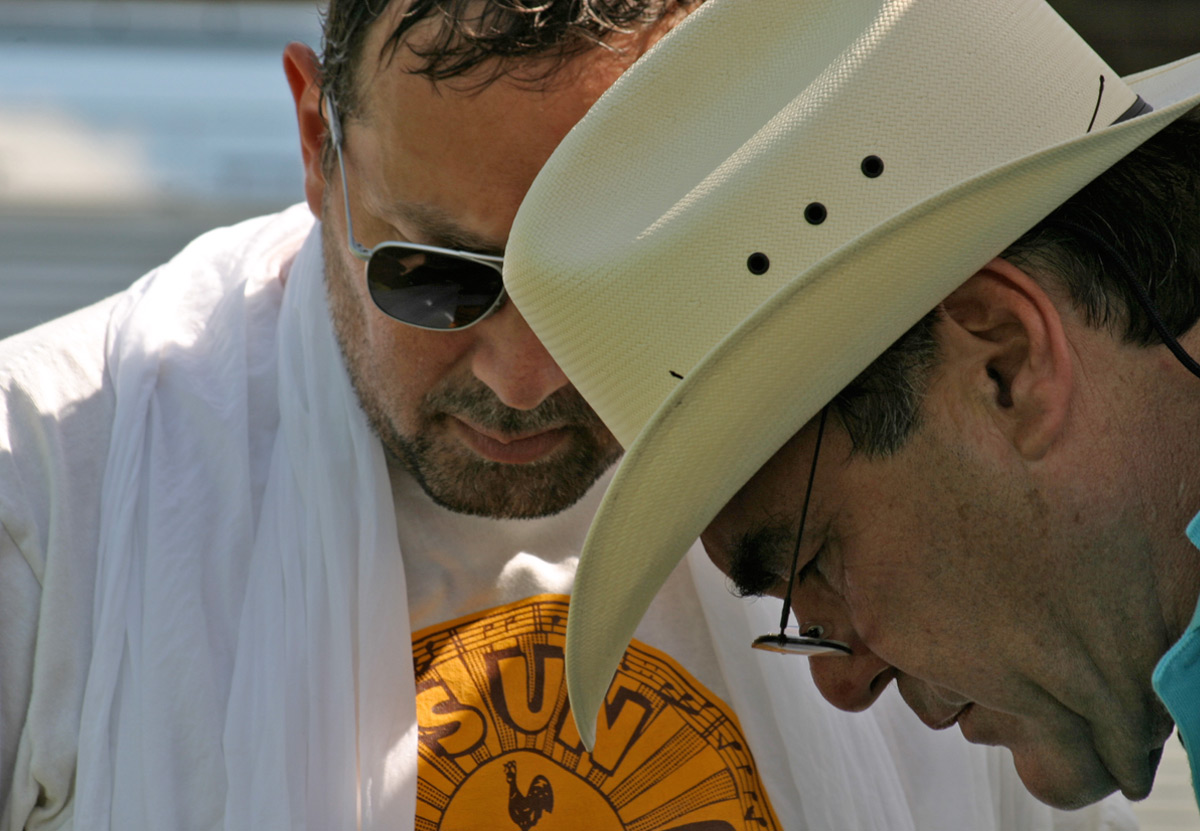It might sound like a case of history repeating itself – the kind of event traditionally associated with a failure to pay attention to what had gone before and the resulting consequences that follow.
During the 1988 Presidential election year, director Oliver Stone became linked to a prospective feature film called Company Man, about illegal arms dealing. The filmmaker found the notion of an Iran/Contra-like project fascinating, but felt he could only go forward on the condition it be released just prior to the national election in November. When that aspect could not be guaranteed, Stone, with some reluctance, abandoned the project.
With this year’s W., scheduled for a mid-October release, one might be tempted to draw a parallel with that still born earlier undertaking which, no doubt, would have fit nicely into Stone’s politically combustible canon of work. The same director, twenty years later, tackling an instantly controversial project about America’s standing commander-in-chief, with a plan to release the film just prior to this year’s polarized, and hotly-contested Presidential elections. But not so: this time out Stone insists there is no mandate for releasing the picture to coincide with the election. “A mandate is a requirement, and there was no such requirement with W. We have a very tight schedule for post, but I can only do the best I can with respect to making the scheduled release date.”
Two-term president (now lame duck) notwithstanding, Oliver Stone’s oft-stated intent with this biographical portrait is to present a legitimate, multi-sided view of Bush (critics will snicker, ‘much as he did with Nixon’), not deliver a polemic. But even-handedness does not preclude a certain level of cinematic artistry, which Stone has shown in spades in past efforts like JFK, Natural Born Killers, and The Doors. “He wants to make an entertaining movie with W.,” says director of photography Phedon Papamichael. “So while it may not be 100 percent realistic, it isn’t stylized to such a degree that audiences couldn’t be drawn into the narrative. Early on we talked about Dr. Strangelove, but it was more in the sense of not wanting to take things quite that far. Also, Oliver didn’t permit me to say the name Kubrick in our discussions about the direction. I had to refer to the director in code, just as ‘K.’”
Rather than naming that legendary filmmaker, Stone speaks only of, “the master,” and half-seriously invokes, “a Greek curse upon Phedon’s head for speaking about the director who is such a hero to me. Tell him from me I had no idea he was such a blabbermouth. I suppose all DPs are gossips. But I love him and them anyway.”
Cinematographers have done fine by Stone, as well. The filmmaker’s fearless use of mixed media helped propel Bob Richardson to his first of two Oscars for 1991’s JFK (Stone and Richardson have collaborated on 11 films to date, three of which earned Academy Award nominations), while the 2004 epic Alexandra brought a Camerimage honor to Rodrigo Prieto.
Stone says his affection for Papamichael’s Greek heritage played into their partnership. “Phedon’s European sensibilities allow him to see all things American in a different way, and that perspective was one that I thought would help tell the story,” he observes. “Another perspective came from Danny Hiele, who I brought over from Europe as an additional shooter, who often shot alternate takes, which adds some spice to the broth, making things more dynamic. I can’t say one style dominated; they worked together to make various story points.”
The 3-time Oscar winner says he “always has personal relationships” with his cinematographers, and the high degree of comfort with Phedon was instrumental in facilitating the shoot. “I was very happy to get him.” Stone continues. “He had done a great job on Wild Palms (Stone-produced TV miniseries), where we had different directors for each part. His presence was the consistent thread that linked the various installments together. And his choices since then showed such versatility. Million Dollar Hotel is a whack-job and hilarious; and as he probably told you, I loved Mousehunt.”
Stone says that for satire to work properly, (he counts Network and Joe as other W. influences) the form has to fit the function. “To anticipate the next question,” he intones, “which is going to be about Phedon’s incredible style, my answer is, it fits the function — as needed on this film. We had to do this so very fast. He’s been around awhile and worked on some low-budget shoots, so he is practical-minded beyond belief. We were able to shoot an incredible amount of footage in 46 days.”
Considering W.’s subject matter, it’s more than a little surprising that Stone shies away from political queries, even remaining mum on who gets his vote in November: “Sorry, I didn’t hear that question,” he demurs. Okay Oliver. We’ll keep the pundits guessing. But if recent Stone-related controversies (everything from visiting with Columbia’s notorious guerilla faction, FARC, to a proposed documentary on Iranian president Mahmoud Ahmadinejad) are any hint, the GOP won’t be counting on his endorsement. Then again trying to predict Stone’s next move is a fool’s errand: his chronicle of the My Lai Massacre and its aftermath, Pinkville, was shuttered by the writer’s strike, and his next announced film is Black Ice, an adaptation of novelist Michael Connelly’s gritty L.A. detective series, featuring Hieronymus (Harry) Bosch.

